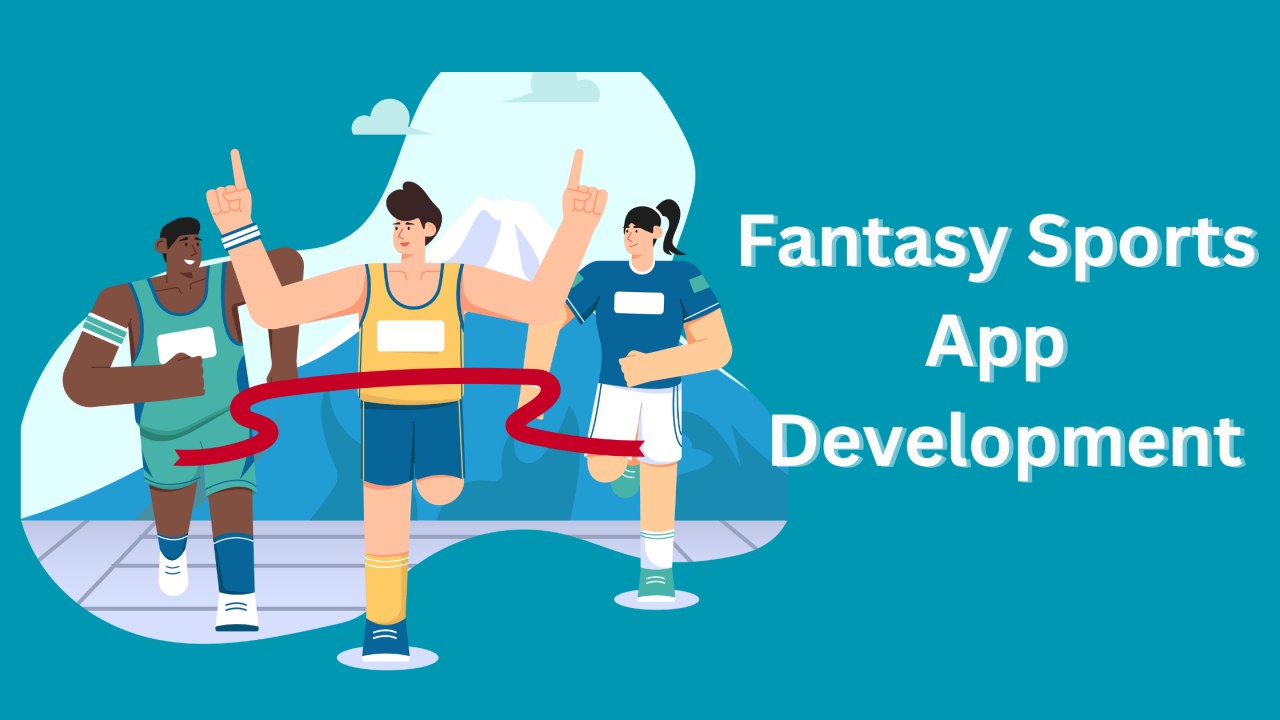The fantasy sports industry has witnessed explosive growth, captivating millions of sports enthusiasts worldwide. At the heart of this phenomenon lies the fantasy sports app, a digital platform that transforms casual fans into virtual team managers. By allowing users to create virtual teams comprised of real-life athletes, fantasy sports apps offer an immersive and competitive experience. This paper delves into the intricacies of fantasy sports app development, exploring key features, target audience, monetization strategies, and the critical role of technology in driving user engagement.
Additionally, we will analyze the potential costs and benefits associated with developing a fantasy sports app, providing valuable insights for entrepreneurs and investors seeking to capitalize on this thriving market.
Top Trends in Fantasy Sports App Development
Incorporating the current trends in your fantasy sports app development can give you the desired edge. We have created a list of all the trends that are popular in this domain. Let’s look at each one in detail.
Average Fantasy Cricket Sports App Development Cost
The cost of building a fantasy cricket development app varies depending on several factors, including features, complexity, and development team rates.
For startups, a basic app with essential features might range from $10,000 to $30,000.
Small to medium-sized enterprises (SMEs) can expect to invest between $30,000 to $120,000 for a more comprehensive app with additional functionalities like live scoring and social integration.
Enterprises seeking top-tier customization and scalability could see fantasy sports development costs exceeding $130,000.
#1. AI in Sports Application
If planning a fantasy sports application, you must incorporate Artificial Intelligence technology. It can enhance user engagement.
Your users will get data-backed insights into the players and their performance. This would help them choose the appropriate players and create a winning team. The application can simulate the teams and help them determine if they want to make any changes.
They would know how these players would play in specific weather conditions or fields. It would help them choose your substitute players and team. They would have a complete opponent analysis at their fingertips, thus making it easier to build the strongest team.
Player Performance Analysis
Data Analysis: AI algorithms analyse vast amounts of player data to identify strengths, weaknesses, and potential improvements.
Injury Prevention: By tracking player movements and biometrics, AI can predict potential injuries and recommend preventive measures.
Fan Engagement
Personalized Recommendations: AI can suggest players, teams, or contests based on user preferences and behavior.
Predictive Analytics: AI can predict game outcomes and offer betting suggestions, enhancing fan engagement.
Example : Games like Dota 2 and FIFA use AI for opponent behavior and adaptive difficulty levels, while sports apps employ AI for predictive analytics and personalized recommendations.
#2. AR and VR
You may notice increased user engagement and experiences when incorporating AR/VR technologies via wearable technologies. It will also improve the viewership of the sports.
When using AR-based smart glasses, your user can get detailed performance stats and player data. They don’t need to move out of their virtual world to see how the player performs in the match.
If users want a live in-stadium experience, they can wear VR headsets and enter the virtual stadium. With seating arrangements and a virtual fanbase, this offers an extensive stadium-like experience to the users.
Your user can always make the substitutions and selections through their smartwatches. These watches are integrated into the application, making things accessible. Your users can also view their chosen team members playing live on the field using smart glasses or AR headsets.
There are numerous ways in which AR and VR with wearable solutions can enhance engagement in the fantasy sports application.
While we lack a graphical figure, it's evident that:
The overall fantasy sports market is booming: This provides a fertile ground for AR/VR integration.
Early adopters are gaining traction: Companies pioneering AR/VR in fantasy sports are likely seeing substantial growth.
Investor interest is increasing: The potential of AR/VR in this space is attracting significant investment.
Example : Games like Pokémon Go and sports apps offering virtual stadium experiences showcase the potential of augmented and virtual reality.
#3. Cybersecurity in fantasy app development
When you are building a digital solution where users plan to share data, Cybersecurity is a critical aspect. When you incorporate this tech trend, you can enhance your fantasy sports application.
It offers multi-factor authentication and strong security systems within the application to safeguard the data. Robust encryption methods can help protect sensitive information. Using current cybersecurity trends, you can also incorporate biometrics for strong protection.
You can use secure communication protocols to enhance streamlined data transmission. You must ensure that the API used in the application is secure and well-protected from SQL injections and other attacks.
You can easily use smart systems to interpret and detect intrusions inside the systems. Additionally, it will ensure a secure payment processing system for your users. The gateways would comply with the latest security standards, ensuring smooth movement.
Protecting user data, including personal information and financial details, is paramount. Strong encryption, secure data storage, and regular audits are crucial. Implementing robust authentication measures like two-factor authentication and role-based access control is vital. Preventing fraud through fraud detection systems, user behavior analysis, and secure payment gateways is essential. Safeguarding the app itself involves secure coding practices, regular security updates, and penetration testing. Adhering to data privacy regulations and maintaining an incident response plan are also crucial components of a comprehensive cybersecurity strategy.
*Cybersecurity concerns for personal data in fantasy apps revolve around protecting sensitive user information like financial details, personal preferences, and account details from unauthorized access, theft, or misuse.
#4. Smart Stadium with IoT
To enhance engagement on the application, you must integrate the smart stadium using IoT technology.
Your users can monitor the fantasy team’s score, current stats and other important data. You can even offer a virtual stadium experience via VR to enhance engagement and get them to stay longer.
With the IoT, you can offer AR overlays to ensure that the users get important information at their fingertips.
You can also introduce a number of polls, quizzes and contests to improve the user’s experience inside the application. To enhance experiences, you can introduce fan engagement activities via IoT. You must track the crowd’s reactions and enthusiasm, which can help you create interactive polls.
Lastly, you can create a smart parking solution within the application for people going to the stadium to watch the match.
This would keep the user on the app even when inside or outside the stadium.
Example ; The Golden 1 Center in Sacramento employs IoT to track player movements, offering coaches real-time data for strategic adjustments. Moreover, the stadium has reduced energy consumption by 20% through IoT-enabled solar panels and water sensors.
#5. Blockchain Technology uses in Sports app develpment
Adding Blockchain technology to your fantasy sports application can uplift its abilities. It will also enhance the security and transparency of the application. While the technology is in its nascent stage, it has several applications in fantasy sports application.
You can easily use Smart Contracts to check player scoring or create team drafts. You can use Blockchain to add the rules and regulations to the tournament, thus ensuring no tampering occurs.
This technology ensures that most of the data are immutable. This means there is no way people can access it for tampering. Your users can own the digital assets within the application using Blockchain technology.
One prominent example in sports app development is the creation of fan tokens. These digital assets provide fans with exclusive benefits like voting rights on club decisions, access to merchandise, and VIP experiences. Blockchain ensures transparency and security in token management and distribution.
Another application is in authenticating sports memorabilia. By leveraging blockchain, the authenticity of items like jerseys, balls, and trading cards can be verified, combating counterfeits and increasing trust among collectors.
#6. Voice-Enabled Interfaces
Voice-enabled interfaces (VUI)
By incorporating voice recognition technology, these apps can offer a hands-free and intuitive experience.
How it works:
Users can interact with the app by speaking commands or asking questions.
The app's voice recognition system processes the spoken input and translates it into actions.
The app responds with relevant information or performs the requested task.
Benefits of VUI in Fantasy Sports Apps:
Enhanced User Experience: Offers a more natural and convenient way to interact with the app.
Accessibility: Improves accessibility for users with disabilities.
Multitasking: Allows users to perform other tasks while engaging with the app.
Real-time Updates: Enables quick access to live scores, player stats, and game information.
Key Components
Examples of VUI in Fantasy Sports:
"What is my team's score?"
"Who is the leading scorer in the league?"
"Trade player X for player Y"
"Set a lineup for tomorrow's game"
By integrating VUI, fantasy sports apps can provide a more engaging and user-friendly experience, ultimately leading to increased user satisfaction and retention.
#7. Social Integration and Community Building
Social interaction is a cornerstone of fantasy sports. By incorporating social features into your app, you can foster a strong sense of community, increase user engagement, and drive retention.
Social integration is vital for fantasy sports app success. By incorporating features like real-time chat, public and private leagues, social sharing, leaderboards, friend invites, and social profiles, apps can foster a strong sense of community. These features encourage user engagement, drive viral growth, and improve user retention. A thriving community enhances the overall fantasy sports experience and strengthens user loyalty.
Core Features
Real-time Chat
Private and Public Leagues
Social Sharing
Leaderboards and Rankings
Friend Invites, Social Profiles
Benefits of Social Integration
Increased User Engagement: Social features keep users coming back to the app to interact with friends and compete in leagues.
Stronger Community: Fosters a sense of belonging and camaraderie among users.
Viral Growth: Encourages users to share their experiences on social media, leading to increased app visibility.
Improved User Retention: By building a strong community, users are more likely to stay engaged with the app.
Example: Dream11 successfully leverages social integration by allowing users to create and join leagues with friends, share their team performance on social media, and engage in real-time chat with other players. This fosters a strong sense of community and competition, driving user engagement and retention.
#8. Gamification in Fantasy Sports App Development
Gamification involves incorporating game-like elements into non-game contexts to enhance user engagement and motivation. In fantasy sports apps, it's about transforming the experience from mere data management into a thrilling competition.
Key elements of gamification in fantasy sports:
Badges and Achievements: Recognizing user milestones with digital badges or trophies boosts motivation.
Leaderboards: Fostering competition by ranking users based on performance, creating a desire to climb the ranks.
Challenges and Quests: Introducing time-bound objectives with rewards to keep users engaged and coming back for more.
Progress Bars and Levels: Tracking user progress towards goals, creating a sense of accomplishment.
Virtual Currencies and Rewards: Offering in-app currencies or rewards for achievements to incentivize participation.
Example : FanDuel FanDuel utilizes gamification by incorporating leaderboards, where users can compete against friends and other players. They offer different game modes with varying difficulty levels, catering to diverse player preferences. The platform also rewards users with virtual currency for achievements, which can be used to enter contests or purchase merchandise.
#9. Esports Integration in Fantasy Sports App Development
The intersection of esports and fantasy sports offers a promising avenue for innovation. By integrating esports elements into fantasy sports apps, developers can tap into a new audience and enhance user engagement.
Here's how esports can be integrated:
Esports Fantasy Leagues: Create fantasy leagues based on esports tournaments, allowing users to draft virtual teams of esports players and compete based on their performance.
Player Prop Bets: Offer prop bets on individual esports player performance, similar to traditional sports betting.
Esports-Themed Challenges: Develop challenges and contests based on esports events, such as predicting tournament winners or player performance.
Esports Live Streaming Integration: Embed live esports streams within the app to enhance the viewing experience and attract esports fans.
Esports Merchandise and Rewards: Offer esports-themed merchandise or in-app rewards as incentives for participation.
Example:
FanDuel has integrated esports into its platform by offering fantasy leagues based on popular esports titles like League of Legends and Dota 2. Users can draft virtual teams of esports players and compete based on their in-game performance. Additionally, FanDuel has introduced esports-themed challenges and rewards, further engaging esports fans and expanding their user base.
Conclusion
Developing a fantasy sports app is a strategic investment that can yield substantial returns. While the initial development costs may seem significant, the potential for user acquisition, engagement, and revenue generation is immense. By leveraging advanced technologies, such as AI and machine learning, you can create a truly exceptional platform that caters to the growing demand for interactive sports entertainment. The benefits of a successful fantasy sports app extend beyond financial gains, as it fosters a strong community of passionate sports fans and strengthens brand loyalty.
With careful planning, execution, and a deep understanding of the target audience, your fantasy sports app can become a dominant force in the industry.
Are you interested to know how to start a delivery business in 2024
Read here : Starting Your Own Delivery Business In 2024
For more information contact : support@mindnotix.in
Mindnotix Software Development Company


 AI-Taxi App
AI-Taxi App AI-Food App
AI-Food App AI-Property Mgmt App
AI-Property Mgmt App AI-CRM
AI-CRM AI-Fantasy App
AI-Fantasy App
 Web Development
Web Development App Development
App Development Business & Startup
Business & Startup Hire Developer
Hire Developer
 Digital Marketing
Digital Marketing Lead-generation
Lead-generation Creative Agency
Creative Agency Branding Agency
Branding Agency Augmented Reality
Augmented Reality Virtual Reality
Virtual Reality Internet of Things
Internet of Things Artificial Intelligence
Artificial Intelligence Blockchain
Blockchain Chatbot
Chatbot



